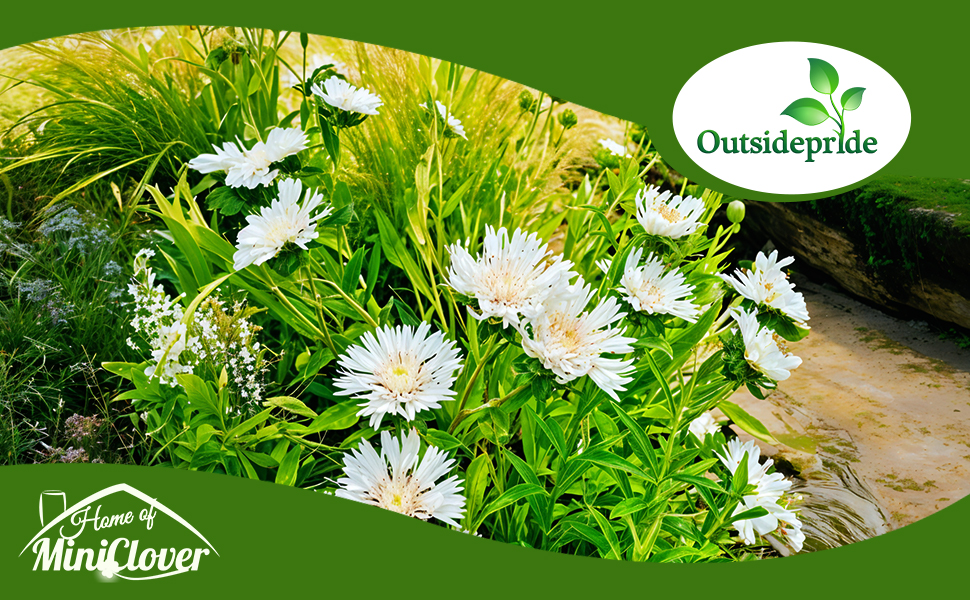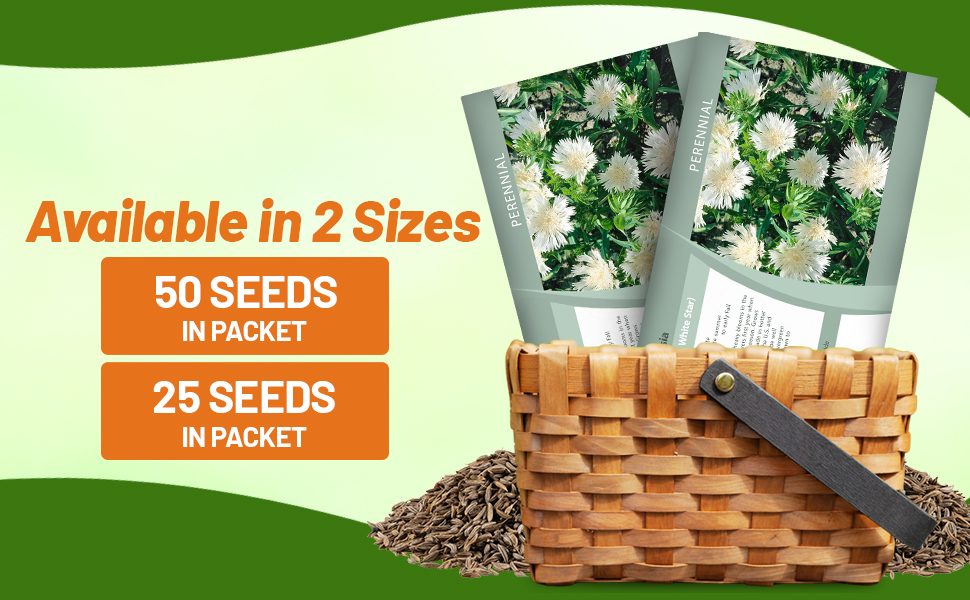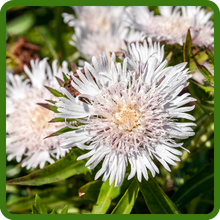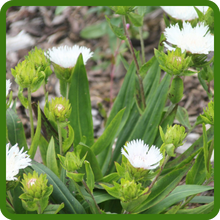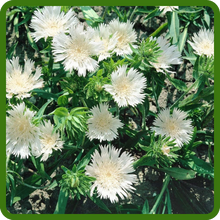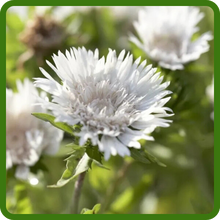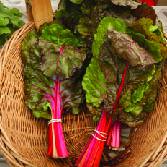Outsidepride White Star Stokesia Seeds (Stokesia laevis White Star) produce drought-tolerant perennial growing 12-16 inches tall, with bright white flowers featuring a subtle pink touch, measuring 3-4 inches across. Blooming from mid-spring to early fall, these plants thrive in USDA zones 5-9 and adapt well to full sun or partial shade in well-drained soils, including sandy to clay loam types. Known to attract butterflies, White Star Stokesia is suitable for borders, cutting gardens, xeriscape landscaping, and containers. Our perennial flower seeds come in 1000 and 2000 flower seed packets.
White Star Stokesia features large, daisy-like white flowers with subtle pink tinges, measuring 3-4 inches across. These blooms have a unique layered petal structure that adds depth and texture, making them visually appealing in garden beds and suitable for long-lasting cut flowers.
Narrow, lance-shaped leaves characterize Stokes Aster flower plant, forming a tidy basal rosette that adds structure to the plant. Their deep green hue contrasts with the bright flowers, offering texture and depth, which contributes to the overall visual appeal of garden beds and containers.
The bushy growth habit of White Star Stokesia creates a full, compact plant that naturally fills space without overcrowding. This dense foliage adds texture and depth to garden beds, providing a balanced backdrop for its flowers and contributing to layered garden designs and mixed plantings.
Our Stokesia plant is drought tolerant, able to grow with minimal water in dry soils. This reduces irrigation needs, making it suitable flower seeds to plant outside for xeriscaping and water-limited areas. Its resilience ensures steady growth and flowering even in less moist climates.
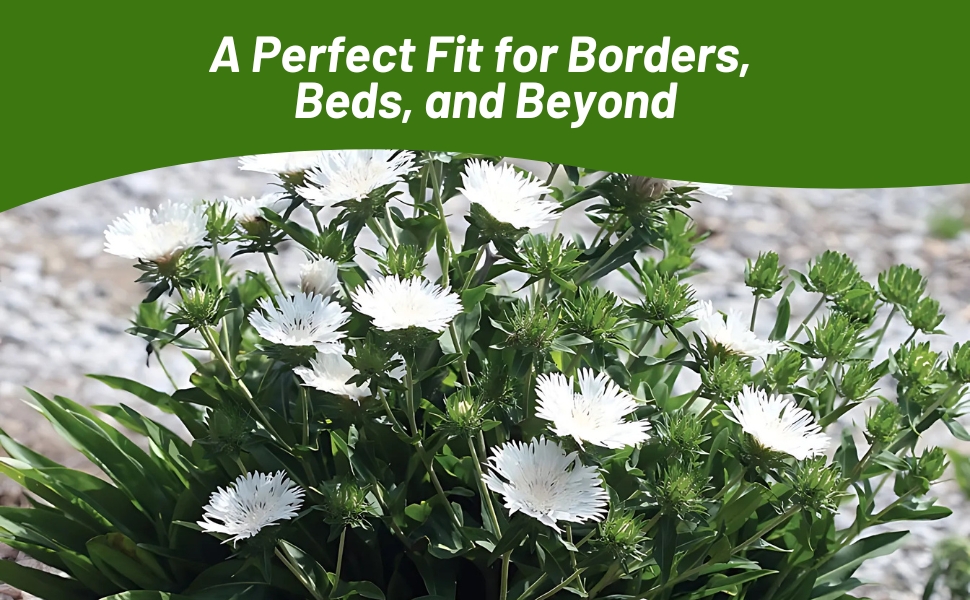
Our White Star Stokesia’s compact size and structured growth bring clear definition and neatness to garden borders and flower beds. Its tidy, bushy form creates clean edges that contrast well with taller plants and low-growing ground covers. This adaptability makes it suitable for various garden designs, whether lining walkways or filling mixed perennial beds. Additionally, its ability to thrive in containers expands its use to patios and balconies, offering gardeners flexibility to create cohesive and attractive outdoor spaces beyond traditional garden plots.
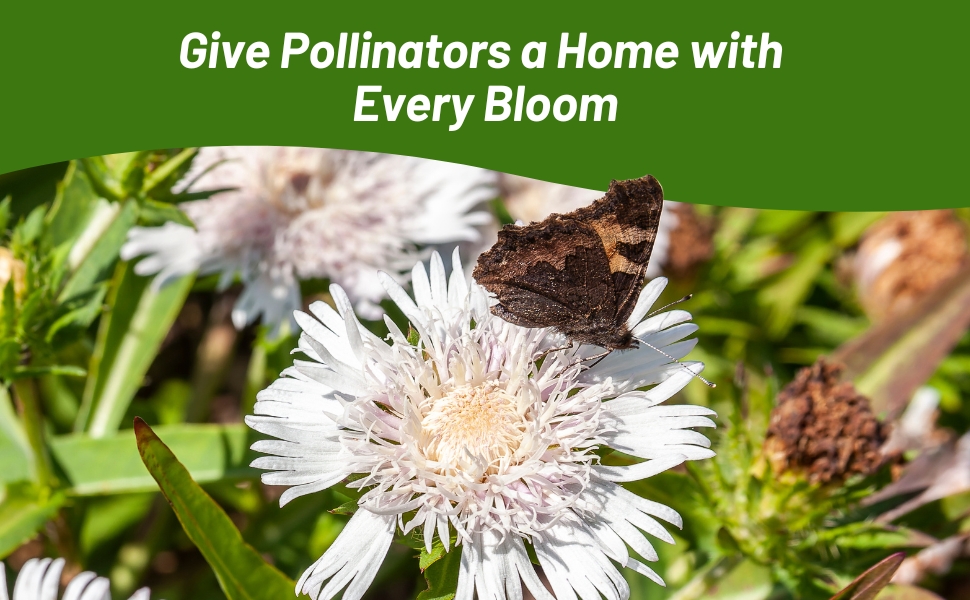
Blooming with bright white flowers from mid-spring to early fall, Our White Star Stokesia reaches heights of 12-16 inches. This perennial grows in USDA zones 5-9 and adapts to full sun to partial shade environments. Its extended flowering period offers a steady nectar source, attracting butterflies and bees over several months. By drawing these pollinators, White Star Stokesia contributes to the variety and vitality of garden spaces and surrounding outdoor areas, playing a part in sustaining balanced plant and animal interactions throughout the growing season.
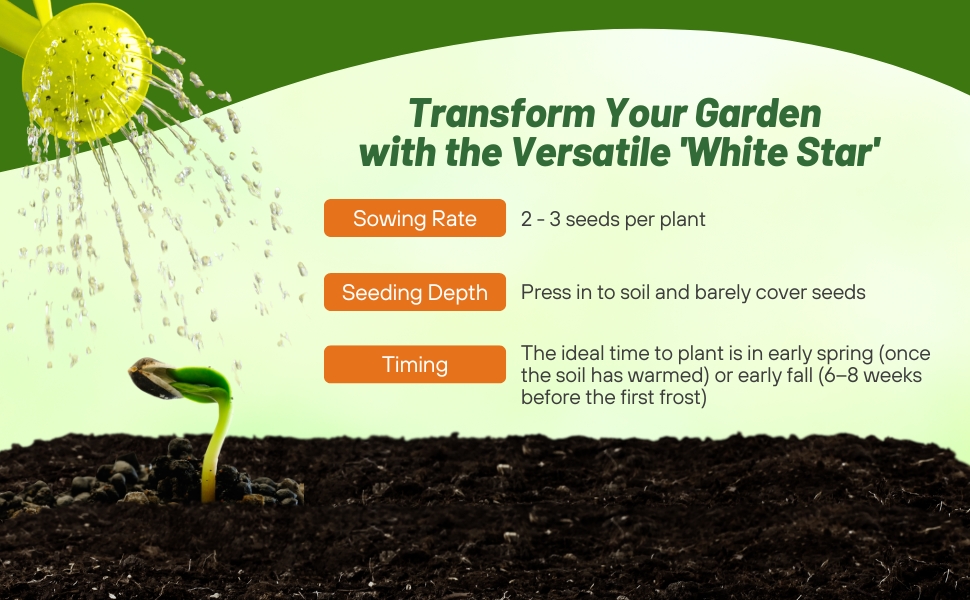
To plant seeds of our White Star Stokesia successfully, follow specific instructions for healthy results. Sow 2-3 seeds per location, pressing them lightly into well-drained soil without deep covering. Keep the soil consistently moist until our garden seeds germinate, typically within 14-35 days at about 70°F. Space plants 15 inches apart to ensure proper airflow and growth. These steps promote successful germination and healthy development, helping gardeners establish White Star in various garden designs and soil types effectively.
Stokesia (Stokesia Laevis White Star) - A wonderful 12 - 16 inch dwarf hardy, drought tolerant perennial which produces lovely bright white with a pink touch, 3 - 4 inch flowers from mid Spring until early Fall. Butterflies love them and they make long-lasting cut flowers. Looks great at the front of borders, in cutting gardens, xeriscape landscaping, or in containers. White Star Stokesia grows as a perennial in USDA Zones 5 - 9. Aster-like, (this is why this garden plant is also known as Stokes Aster) large flowerheads held terminally on upright stems.
As with most perennials you will not get heavy blooms in the first year after sowing these flower seeds; however some flowers first year when started early. Much heavier bloom second season. Grows best in full sun in coler climates and part shade in hotter climates. Stokesia is widely adapted across the U.S. and tolerates a variety of soils, but they need to be well drained. Evergreen in warm climates, semi-evergreen in cold winter areas. Deer and rabbits are known to avoid stokes aster.

